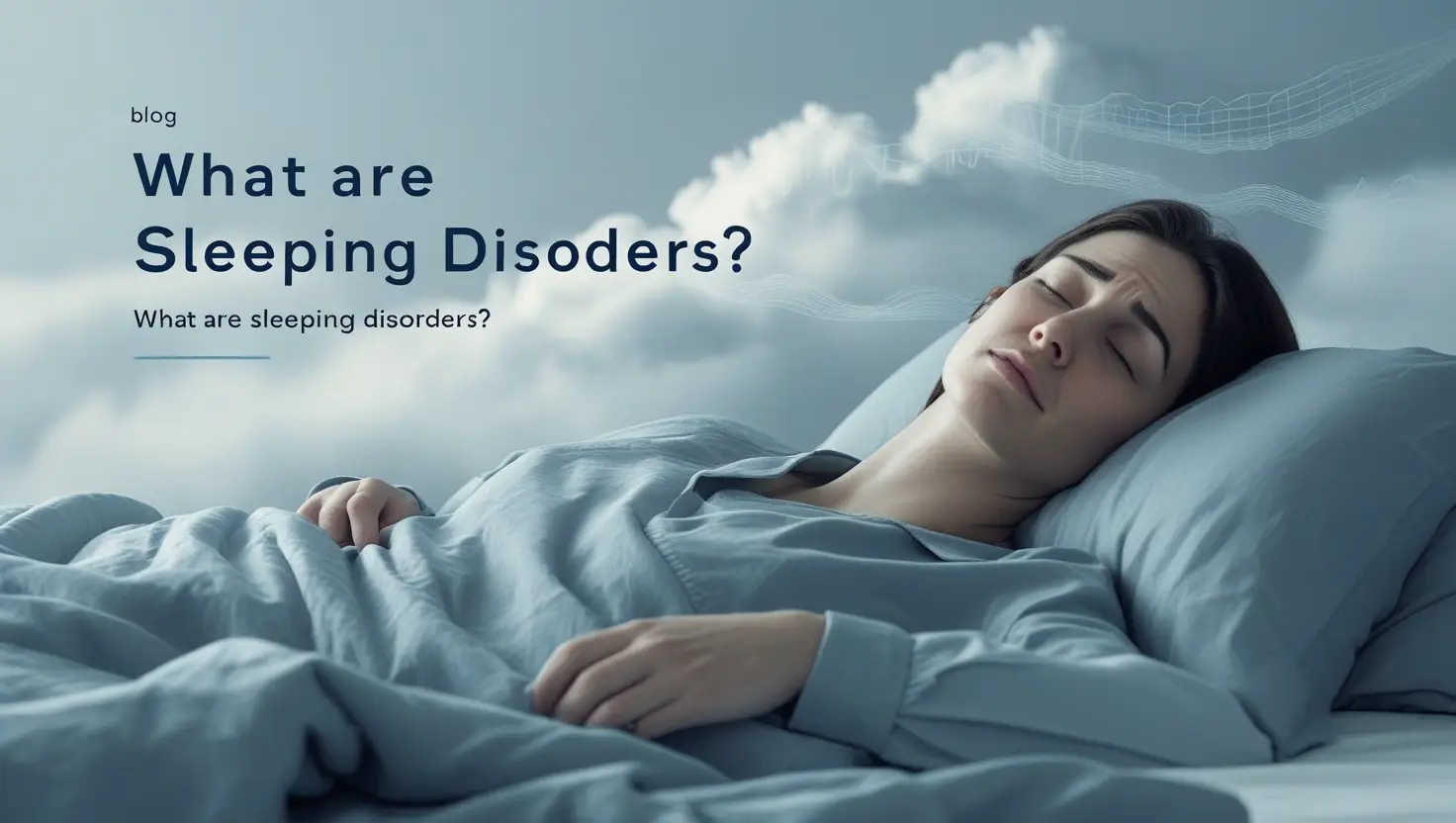How Sleep Boosts Mental Health: Science-Backed Benefits
Introduction to Sleep and Mental Health
Sleep is more than just a nightly pause; it’s a vital component of your mental health. When you sleep well, you’re better equipped to handle stress, maintain stable moods, and think clearly. But when sleep falters, it can amplify anxiety, deepen depression, or make managing conditions like PTSD tougher. Let’s break down how sleep benefits your mental health, explore specific connections with mental health conditions, and share actionable tips to improve your sleep routine.
General Benefits of Sleep
Sleep does wonders for your mind. It helps regulate emotions, making it easier to manage daily stress and keep your mood steady. During REM sleep, your brain processes emotional experiences, which is key for emotional balance. Research also shows that good sleep enhances cognitive functions like memory and decision-making, while poor sleep can cloud your thinking and increase irritability. For most adults, aiming for 7–9 hours nightly is a good target, though you might feel best with a bit more or less. Naps can be a quick boost, but keep them short (20–30 minutes) to avoid disrupting nighttime rest.
Sleep and Specific Mental Health Conditions
The link between sleep and mental health conditions is strong and often two-way. For instance, lack of sleep can worsen anxiety and depression, and these conditions can, in turn, make it harder to sleep. Insomnia, a common sleep disorder, is particularly tied to these issues. For PTSD, good sleep can help process traumatic memories, reducing symptoms like nightmares. Conditions like bipolar disorder and ADHD also benefit from stable sleep routines, with strategies like reducing pre-bed stimulation being helpful for ADHD. Interestingly, sleep affects serotonin levels, which are crucial for mood regulation, adding another layer to this connection.
Practical Tips for Better Sleep
Improving your sleep can directly support mental wellness. Start with basics like sticking to a regular sleep schedule and creating a calm bedroom environment—cool, dark, and quiet works wonders. For anxiety relief, try relaxation techniques like deep breathing before bed. If you’re dealing with PTSD, consider weighted blankets for their comforting pressure, which can ease anxiety. Apps like Headspace or Calm offer guided meditations, while herbal teas like chamomile or lavender can help you unwind. If your sleep schedule’s off, set a fixed wake-up time and gradually adjust your bedtime to sync with your body’s rhythm.
Comprehensive Analysis of Sleep Benefits for Mental Health
This detailed exploration delves into the intricate relationship between sleep and mental health, addressing the main keyword “Sleep benefits for mental health,” along with frequently asked questions (FAQs) and secondary keywords. The content is designed for a 20–40 age group, both men and women, aiming for a word count of approximately 2000 words, with a casual, conversational tone and SEo optimization in mind.
Introduction: The Vital Link Between Sleep and Mental Health
Ever felt like you’re not yourself after a bad night’s sleep? You’re not alone. Sleep and mental health are deeply connected, and understanding this can transform how you feel daily. This blog post will unpack how sleep benefits your mental health, dive into specific conditions like anxiety and PTSD, and offer practical tips to enhance your sleep routine. Whether you’re tossing and turning at night or just curious, let’s explore how a good night’s sleep can be your mental health ally.
Section 1: General Benefits of Sleep for Mental Health
Sleep isn’t just downtime; it’s active brain maintenance. Here’s how it boosts your mental health:
How Does Sleep Improve Mental Health?
Sleep is crucial for brain health, processing memories, and regulating emotions. During sleep, your brain consolidates what you learned during the day, which is vital for cognitive function. It also helps manage stress, keeping you balanced. According to recent studies from the Sleep Foundation, good sleep can reduce the risk of mental health issues, making it a cornerstone for well-being.
Connection Between REM Sleep and Emotional Regulation
REM sleep, where most dreaming happens, is key for emotional regulation. It’s when your brain processes daily emotional experiences, helping you wake up feeling less reactive. Research from ScienceDirect shows REM sleep helps consolidate emotional memories, reducing negative affect. So, if you’re feeling overwhelmed, getting enough REM sleep might help you handle emotions better.
How Many Hours of Sleep Are Needed for Optimal Mental Health?
Most adults need 7–9 hours, but it’s not one-size-fits-all. The American Academy of Sleep Medicine recommends this range for optimal health, including mental well-being. Listen to your body—if you wake up refreshed with 8 hours, that’s your sweet spot. The Mayo Clinic notes individual needs vary, so track how you feel.
Does Improving Sleep Quality Reduce Stress?
Yes, it does. Poor sleep can spike stress hormones like cortisol, making you feel on edge. Good sleep, on the other hand, helps your body recover, reducing stress. The Mental Health Foundation highlights that better sleep can break the stress-sleep cycle, leaving you more resilient.
Are Naps Beneficial for Mental Health?
Short naps (20–30 minutes) can boost alertness and mood, but longer ones might disrupt nighttime sleep. The Sleep Foundation suggests naps are great for a quick mental reset, especially if you’re feeling foggy, but keep them early in the afternoon to avoid interfering with your bedtime.
How Does Sleep Improve Mood Stability?
Sleep regulates neurotransmitters like serotonin and dopamine, which keep your mood steady. When you’re sleep-deprived, these can get out of whack, leading to mood swings. Research from Healthline shows sleep deprivation can increase irritability, so prioritize those Z’s for a calmer you.
What Are the Best Sleep Habits to Support Mental Wellness?
Stick to a regular sleep schedule, create a cozy bedroom, and avoid screens before bed. Relaxation techniques like deep breathing can help, too. These habits, often called sleep hygiene, are backed by the CDC, and they’re simple ways to set yourself up for better mental health.
Section 2: Sleep and Specific Mental Health Conditions
The connection between sleep and mental health conditions is often a two-way street, with each influencing the other. Here’s a deeper look:
Sleep Disorders That Wreck Your Mental Health
Not all sleep issues are created equal. Some disorders hit your mental health harder than others:
| Disorder | Mental Health Impact |
|---|---|
| Insomnia | Anxiety, depression, irritability |
| Sleep Apnea | Fatigue, brain fog, increased depression risk |
| Restless Leg Syndrome | ADHD-like symptoms, mood swings |
| Narcolepsy | Emotional instability, memory lapses |
Can Lack of Sleep Cause Anxiety or Depression?
It’s not a direct cause, but research suggests poor sleep can exacerbate anxiety and depression. A study from Sleep Medicine found people with insomnia were five times more likely to develop depression. It’s a cycle: anxiety can keep you awake, and lack of sleep can heighten anxiety, making it harder to break free.
What Sleep Disorders Most Affect Mental Health
Insomnia, sleep apnea, and circadian rhythm disorders top the list. Insomnia, in particular, is linked to anxiety and depression, with Psychiatry.org noting 40–50% of insomnia patients also have a mental health disorder. These disorders can worsen mental health, creating a challenging loop.
Can Sleep Help Manage Symptoms of PTSD or Trauma?
Yes, good sleep can help process traumatic memories, reducing symptoms like nightmares. For PTSD, creating a safe sleep environment is key, and therapy can address sleep disturbances. The Beyond Blue resource suggests sleep can ease hypervigilance, making it a vital part of recovery.
Sleep’s Role in Managing Bipolar Disorder
Sleep disturbances are common in bipolar disorder, with manic phases often reducing sleep need and depressive phases increasing it. Stabilizing sleep can help manage mood swings, as per APA Blogs. Working with a healthcare provider to maintain a routine is crucial.
How to Sleep Better for ADHD Management
ADHD can make falling asleep tricky, with racing thoughts or hyperactivity. Strategies include a consistent bedtime routine, reducing stimulation before bed, and possibly medication. The Sleep Foundation notes sleep issues are common in ADHD, and addressing them can improve focus and mood.
Sleep and Serotonin Production
Sleep affects serotonin, a mood-regulating neurotransmitter, and is a precursor to melatonin. Adequate sleep ensures proper serotonin function, as per Healthline, which can help stabilize mood and reduce depression risk.
Impact of Insomnia on Mental Health
Insomnia can increase depression and anxiety risk, creating a vicious cycle. The CDC found inadequate sleep linked to frequent mental distress, emphasizing the need for intervention.
Does Melatonin Help with Depression?
The evidence is mixed. Some studies suggest melatonin can help with depression, especially when tied to sleep issues, but others warn it might worsen symptoms for some. Healthline advises consulting a doctor, as it’s not a standalone treatment for depression.
Section 3: Practical Tips for Better Sleep to Support Mental Wellness
Improving sleep can directly boost your mental health. Here are some actionable tips, tailored to your needs:
Best Sleep Habits for Anxiety Relief
For anxiety, try a regular sleep schedule, a calming pre-bed routine, and avoid caffeine late in the day. Relaxation techniques like deep breathing can ease racing thoughts, as suggested by NHS. These habits can reduce anxiety and improve sleep quality.
Can Better Sleep Reduce Panic Attacks?
Better sleep can lower anxiety levels, potentially reducing panic attack frequency. Good sleep hygiene and therapy can help, with PsychCentral noting sleep deprivation can heighten anxiety, making this a key strategy.
Sleep Environment for Stress Reduction
Your bedroom should be a sanctuary—cool, dark, and quiet. Remove electronics and clutter to create a relaxing space. The Sleep Foundation recommends this for stress reduction, helping you unwind and sleep better.
How to Fix Sleep Schedule for Mental Health
Set a fixed wake-up time, even on weekends, and gradually adjust bedtime to align with your body’s rhythm. This helps regulate your circadian clock, as per Harvard Health, improving mental health over time.
Sleep Apps for Anxiety and Depression
Apps like Headspace, Calm, and Sleep Cycle offer guided meditations and sleep tracking. They can help manage anxiety and depression, with Healthline noting their effectiveness for relaxation and better sleep.
Weighted Blankets for Mental Health Benefits
Weighted blankets provide deep pressure, reducing anxiety and improving sleep. They’re particularly helpful for conditions like PTSD and ADHD, with Sleep Foundation research showing reduced insomnia symptoms. They offer a hug-like comfort, perfect for winding down.
Best Teas for Sleep and Mental Relaxation
Try chamomile, lavender, or valerian root teas before bed. These have relaxing properties, promoting sleep and easing stress. Healthline lists them as top choices, ideal for a calming nightly ritual.
Sleep Meditation for Emotional Balance
Meditation before bed can calm your mind, reduce stress, and promote emotional balance. Even 5 minutes of mindfulness can help, as per Cleveland Clinic, setting you up for better sleep and mental health.
Conclusion: Embracing Sleep for Mental Wellness
In conclusion, sleep is a fundamental aspect of maintaining good mental health. By understanding its benefits and implementing practical strategies, you can enhance your overall well-being and resilience against mental health challenges. Remember, if you’re struggling with persistent sleep issues or mental health concerns, it’s important to seek help from a healthcare professional. Share your sleep tips in the comments below or let us know how you’ve improved your mental health through better sleep—we’d love to hear from you!


